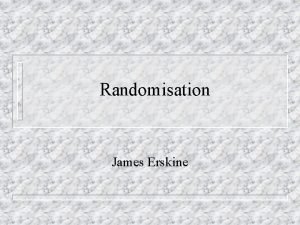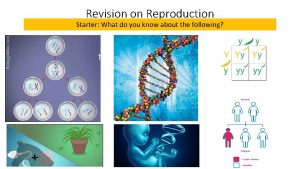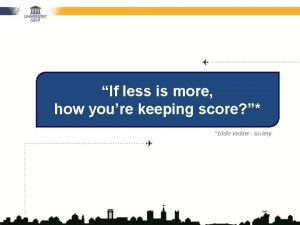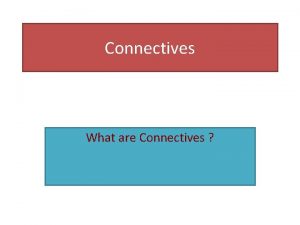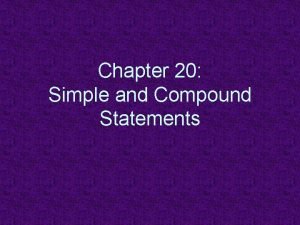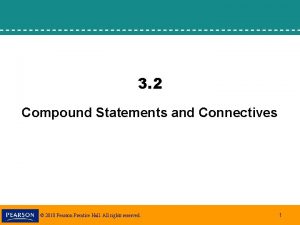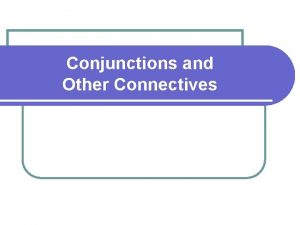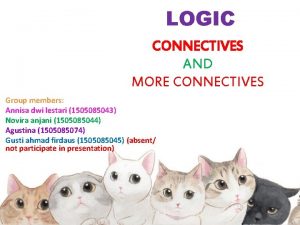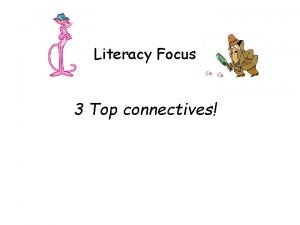Lesson 3 2 Compound Statements and Connectives Youre









- Slides: 9

Lesson 3. 2 Compound Statements and Connectives

• You’re wealthy. You’re well educated. You’ll be happy. • These are simple statements because they convey one idea with no connecting words. • Compound statements – statements formed by combining two or more simple statements. • Connective words like and, or, if …. Then and if and only if

• If p and q represent two simple statements, then the compound statement “p and q” is symbolized by p q • A statement with the word and is called a conjunction. • p: It is after 5 pm • q: They are working

• p: It is after 5 pm • q: They are working • Write in symbolic form. • It is after 5 pm and they are working. • It is after 5 pm and they are not working. • They are working and it is after 5 pm.

• Exclusive or – one or the other but not both • Inclusive or – either or both • p or q this is a disjunction • Symbolized by p q

If – Then Statements • The compound statement “If p, then q” is symbolized by p q. • If – then statements are also called conditional statements. • Antecedent consequent

If and only if • “p if and only if q” is symbolized by p q • An If and only if statements is also called a biconditional. • The phrase if and only if can be abbreviated as iff.

Symbolic Statements with Parentheses p: She is wealthy q: She is happy ~(p q) ~p q ~(p q)

• p: A student misses lecture • q: A student studies. • r: A student fails. (q ~p) ~r q (~p ~r) • Dominance of connectives – If a symbolic statement appears without parentheses, statements before and after the most dominant connective should be grouped. Negation Conjunction/ Disjunction Conditional Biconditional




